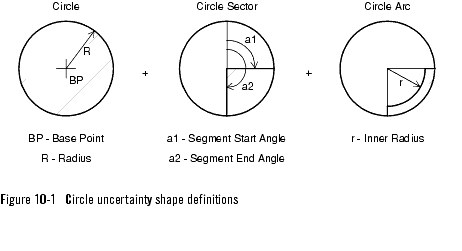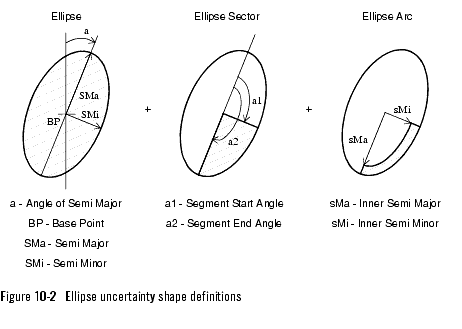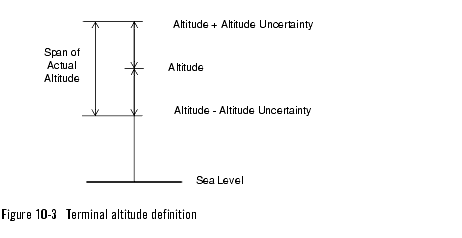API Description for Extended Web Services
|
|
Get Adobe Reader |
User Location
The following sections provide detailed information about the User Location service capability:
Web Service
The user location Web Service provides an application with functions for retrieving the location of a mobile terminal.
getExtendedLocation
Retrieves a mobile terminal's location with extended data. Asynchronous request.
|
The URL to the Web Service that implements the listener interface. See Listener interface. An example is |
||
|
See ArrayOf_xsd_string. The addresses, in URI format (tel:<address>), to request location for. |
||
|
See Priority. |
||
|
See LocationResponseTime. |
||
|
See LocationType. The type of location requested. |
||
|
ID of the request. This ID is supplied in setExtendedLocation to keep track of the different request-response pairs. |
||
|
See LocationException. |
||
|
See GeneralException. |
getExtendedLocationWait
Retrieves a mobile terminal's location with extended data and returns the location directly. Synchronous request.
|
See ArrayOf_xsd_string. The addresses, in URI format (tel:<address>), of the mobile terminals to be positioned. |
||
|
See Priority. Priority of the request. |
||
|
See LocationResponseTime. |
||
|
See LocationType. The type of location requested. |
||
|
The time, in seconds, to wait for a response. If the response is not delivered within this time frame, and exception is thrown. |
||
|
See ArrayOfExtendedLocationResult.Array of locations, one for each terminal which location was requested. |
||
|
See LocationException. |
||
|
See GeneralException. |
getGeoLocation
Retrieves a mobile terminal's location with geographical information, such as street address, included. Asynchronous request.
|
The URL to the Web Service that implements the listener interface. See Listener interface. An example is |
||
|
See ArrayOf_xsd_string. The addresses, in URI format (tel:<address>), to request location for. |
||
|
See Priority. Priority of the request. |
||
|
See LocationResponseTime. |
||
|
See LocationType. The type of location requested. |
||
|
ID of the request. This ID is supplied in setGeoLocation to keep track of the different request-response pairs. |
||
|
See LocationException. |
||
|
See GeneralException. |
getGeoLocationWait
Retrieves a mobile terminal's location with geographical information, such as street address, included and returns the location directly. Synchronous request.
|
See ArrayOf_xsd_string. The addresses, in URI format (tel:<address>), of the terminals to be positioned. |
||
|
See Priority.Priority of the request. |
||
|
See LocationResponseTime. |
||
|
See LocationType. The type of location requested. |
||
|
The time, in seconds, to wait for a response. If the response is not delivered within this time frame, and exception is thrown. |
||
|
See ArrayOfGeoLocationResult. Array of locations, one for each terminal which location was requested. |
||
|
See LocationException. |
||
|
See GeneralException. |
getLocation
Retrieves a mobile terminal's location. Asynchronous request.
|
The URL to the Web Service that implements the listener interface. See Listener interface. An example is |
||
|
See ArrayOf_xsd_string. The addresses, in URI format (tel:<address>), of the mobile terminals to be positioned. |
||
|
ID of the request. This ID is supplied in setGeoLocation to keep track of the different request-response pairs. |
||
|
See LocationException. |
||
|
See GeneralException. |
getLocationWait
Retrieves a mobile terminal's location and return the location directly. Synchronous request.
|
See ArrayOf_xsd_string. The addresses, in URI format (tel:<address>), of the mobile terminals to be positioned. |
||
|
See LocationResponseTime. |
||
|
The time, in seconds, to wait for a response. If the response is not delivered within this time frame, and exception is thrown. |
||
|
See ArrayOfLocationResult. Array of locations, one for each terminal which location was requested. |
||
|
See LocationException. |
||
|
See GeneralException. |
startPeriodicGeoLocation
Starts to retrieve mobile user's locations with geographical information, such as street address, included periodically. Asynchronous request.
|
The URL to the Web Service that implements the listener interface. See Listener interface. An example is |
||
|
See ArrayOf_xsd_string. The addresses, in URI format (tel:<address>), of the mobile terminals to be positioned. |
||
|
See Priority. Priority of the request. |
||
|
See LocationResponseTime. |
||
|
See LocationType. The type of location requested. |
||
|
ID of the session. This ID is supplied in setPeriodicGeoLocation to keep track of the request and the associated responses. The ID is also used when stopping the session. |
||
|
See LocationException. |
||
|
See GeneralException. |
startPeriodicLocation
Starts to retrieve mobile user's locations with extended location data included periodically. Asynchronous request.
|
The URL to the Web Service that implements the listener interface. See Listener interface. An example is |
||
|
See ArrayOf_xsd_string. The addresses, in URI format (tel:<address>), of the mobile terminals to be positioned. |
||
|
See Priority. Priority of the request. |
||
|
See LocationResponseTime. |
||
|
See LocationType. The type of location requested. |
||
|
ID of the request. This ID is supplied in setPeriodicLocation to keep track of the request and the associated responses. |
||
|
See LocationException. |
||
|
See GeneralException. |
startTriggeredLocationReporting
Starts a triggered location tracking reporting session. When a mobile terminal enters a certain area, a report is sent to the application. Asynchronous request.
|
The URL to the Web Service that implements the listener interface. See Listener interface. An example is |
||
|
See ArrayOf_xsd_string. The addresses, in URI format (tel:<address>) of the mobile terminals to be positioned. |
||
|
See LocationTrigger. Definition of the area or geographical location for which a location report shall be sent to the application. |
||
|
ID of the request. This ID is supplied in setPeriodicLocation to keep track of the request and the associated responses. |
||
|
See LocationException. |
||
|
See GeneralException. |
stopPeriodicGeoLocation
Stops a periodic geographical location tracking session. Synchronous request.
|
Identifier for the session. See startPeriodicGeoLocation for information on how to start the session. |
||
|
See LocationException. |
||
|
See GeneralException. |
stopPeriodicLocation
Stops a periodic location tracking session. Synchronous request.
|
Identifier for the session. See startPeriodicLocation for information on how to start the session. |
||
|
See LocationException. |
||
|
See GeneralException. |
stopTriggeredLocationReporting
Stops a location triggered location tracking session. Synchronous request.
|
Identifier for the session. See startTriggeredLocationReporting for information on how to start the session. |
||
|
See LocationException. |
||
|
See GeneralException. |
Exceptions
LocationException
Exceptions of this type are raised when there are error conditions related to the location Web Service. Other error conditions are reported using the exception GeneralException.
GeneralException
This exception is raised when the applications session has expired or there are communication problems with the underlying platform.
Complex data types
LocationType
Type of location requested. Enumeration (xsd:string) with one of the following values.
LocationResponseTime
Application-defined response time. Valid only in combination when responseTimeIndicator is set to use user-defined value. See LocationResponseTimeIndicator. Depends on the network.
|
Application-defined response time. Valid only in combination when responseTimeIndicator is set to use user-defined value. See LocationResponseTimeIndicator. Depends on the network. |
LocationResponseTimeIndicator
Indicates the accepted response times (QoS). Enumeration (xsd:string) with one of the following values.
|
Sets the timer to the time indicated in LocationResponseTime used. |
Priority
Indicates the desired priority of the request (QoS). Enumeration (xsd:string) with one of the following values.
LocationTrigger
Defines the geographical area and the event type that shall trigger a location report. Event type is either when the terminal enters or exits the area.
LocationTriggerLocation
Defines the type of area and the data related to that area.
|
See TriggerLocationTypes. |
||
|
Either LocationTriggerLongLat or GeoLocation depending on type defined in triggerLocationTypes. |
LocationTriggerCriteria
Defines when the location report shall be distributed to the application. Enumeration (xsd:string) with the following values.
|
Used to trigger the response when the mobile terminal enters the area defined in LocationTrigger. |
|
|
Used to trigger the response when the mobile terminal leaves the area defined in LocationTrigger. |
ArrayOfExtendedLocationResult
Array of locations. See ExtendedLocationResult for information on the individual elements in the array.
ExtendedLocationResult
The address, in URI format (tel:<address>), of the located mobile terminal.
See LocationStatusCodes.
See ExtendedLocation.
|
The address, in URI format (tel:<address>), of the located mobile terminal. |
||
|
See LocationStatusCodes. |
||
|
See ExtendedLocation. |
LocationStatusCodes
Information about the outcome of a location request. Enumeration (xsd:string) with one of the following values.
ExtendedLocation
Location data, extended with information in altitude and terminal type.
|
See Location. |
||
|
See TerminalType. |
||
|
Time when the terminal was positioned. Format is YYYY-MM-DD HH:MM:SS.mmm. |
||
|
Method used when the mobile terminal was positioned if supported by the network. |
TerminalType
Information on the terminal with the given address. Enumeration (xsd:string) with one of the following values.
ArrayOfLocationResult
Array of locations. See LocationResult for information on the individual elements in the array.
LocationResult
The MSISDN, in URI format (tel:<address>), of the located mobile terminal.
See LocationStatusCodes.
See Location.
|
The MSISDN, in URI format (tel:<address>), of the located mobile terminal. |
||
|
See LocationStatusCodes. |
||
|
See Location. |
Location
Location data with longitude, latitude, and indicator of the uncertainty shape.
LocationUncertaintyShape
Defines a location uncertainty shape.
|
Depends on what is specified in locationUncertaintyShapeType. See LocationUncertaintyShapeTypes for mapping between data type and locationUncertaintyShapeType. |
LocationUncertaintyShapeTypes
For a description of the uncertainty shapes see Location Uncertainty shapes.
Enumeration (xsd:string) within of the following values.
LocationUncertaintyShapeCircle
Defines the circle uncertainty shape. See Figure 10-1, Circle uncertainty shape definitions, on page 10-38.
LocationUncertaintyShapeCircleArcStripe
Defines the circle arc stripe uncertainty shape. See Figure 10-1, Circle uncertainty shape definitions, on page 10-38.
|
The circle sector. See LocationUncertaintyShapeCircleSector. |
||
LocationUncertaintyShapeCircleSector
Defines the circle sector uncertainty shape. See Figure 10-1, Circle uncertainty shape definitions, on page 10-38.
|
Radius of the circle. See LocationUncertaintyShapeCircle. |
||
LocationUncertaintyShapeEllipse
Defines the ellipse uncertainty shape. See Figure 10-1, Circle uncertainty shape definitions, on page 10-38.
LocationUncertaintyShapeEllipseArcStripe
Defines the ellipse arc stripe uncertainty shape. See Figure 10-1, Circle uncertainty shape definitions, on page 10-38.
|
Definition of the ellipse. See LocationUncertaintyShapeEllipseSector. |
||
|
Size of semi major axis of the inner ellipse defining the stripe. Given in meters. |
||
|
Size of semi minor axis of the inner ellipse defining the stripe. Given in meters. |
LocationUncertaintyShapeEllipseSector
Defines the ellipse sector uncertainty shape. See Figure 10-2, Ellipse uncertainty shape definitions, on page 10-39.
|
Defines the ellipse. See LocationUncertaintyShapeEllipse. |
||
TriggerLocationTypes
Definition of which geographical area definition method to use for triggered user location.
Enumeration (xsd:string) with the following values.
|
Area definition method is based on longitude and latitude. See LocationTriggerLongLat. |
|
|
Area definition method is based on abstract geographical definitions such as street address, ZIP-code and so on. See GeoLocation. |
LocationTriggerLongLat
Definition of a geographical area. See Ellipse uncertainty shapes. The area is defined by an ellipse.
GeoLocation
Definition of a geographical area. Defined by names representing a geographical location.
ArrayOfGeoLocationResult
Array of geographical locations. See GeoLocationResult for information on the individual records in the array.
GeoLocationResult
The address, in URI format (tel:<address>), of the located terminal.
See LocationStatusCodes.
See GeoLocation.
|
The address, in URI format (tel:<address>), of the located terminal. |
||
|
See LocationStatusCodes. |
||
|
See GeoLocation. |
ArrayOf_xsd_string
Listener interface
The location listener interface defines the methods that the underlying platform invokes on a Web Service that is implemented by an application. When an application performs asynchronous requests from the location Web Service, the responses are delivered according to this interface.
deactivate
Used by the underlying system to inform the application that a session is no longer valid. The application can not use the session no more.
|
ID of the session to be deactivated. The ID was returned when getExtendedLocation, getGeoLocation, or getLocation was invoked. |
||
setExtendedLocation
Responses to requests invoked by getExtendedLocation are reported using this method.
|
ID of the request. The ID was returned when getExtendedLocation was invoked. |
||
|
See ArrayOfExtendedLocationResult. The requested location data. |
||
setExtendedLocationError
Errors related to requests invoked by getExtendedLocation are reported using this method.
|
ID of the request. The ID was returned when getExtendedLocation was invoked. |
||
setGeoLocation
Responses to requests invoked by getGeoLocation are reported using this method.
|
ID of the request. The ID was returned when getGeoLocation was invoked. |
||
|
See ArrayOfExtendedLocationResult. The requested location data. |
||
setGeoLocationError
Errors related to requests invoked by getGeoLocation are reported using this method.
|
ID of the request. The ID was returned when getGeoLocation was invoked. |
||
setLocation
Responses to requests invoked by getLocation are reported using this method.
|
ID of the request. The ID was returned when getLocation was invoked. |
||
|
See ArrayOfExtendedLocationResult. The requested location data. |
||
setLocationError
Errors related to requests invoked by getLocation are reported using this method.
|
ID of the request. The ID was returned when getLocation was invoked. |
||
setPeriodicGeoLocation
Responses to requests invoked by startPeriodicGeoLocation are reported using this method.
|
ID of the request. The ID was returned when startPeriodicGeoLocation was invoked. |
||
|
See ArrayOfExtendedLocationResult. The requested location data. |
||
setPeriodicGeoLocationError
Errors related to requests invoked by startPeriodicGeoLocation are reported using this method.
|
ID of the request. The ID was returned when startPeriodicGeoLocation was invoked. |
||
setPeriodicLocation
Responses to requests invoked by startPeriodicLocation are reported using this method.
|
ID of the request. The ID was returned when startPeriodicLocation was invoked. |
||
|
See ArrayOfExtendedLocationResult. The requested location data. |
||
setPeriodicLocationError
Errors related to requests invoked by startPeriodicLocation are reported using this method.
|
ID of the request. The ID was returned when startPeriodicLocation was invoked. |
||
setTriggeredLocation
Responses to requests invoked by startTriggeredLocationReporting are reported using this method.
|
ID of the request. The ID was returned when startTriggeredLocationReporting was invoked. |
||
|
See ArrayOfTriggeredLocationResult. The requested location data. |
||
setTriggeredLocationError
Errors related to requests invoked by startTriggeredLocationReporting are reported using this method.
|
ID of the request. The ID was returned when startTriggeredLocationReporting was invoked. |
||
Exceptions
Complex data types
Below are the complex data types defined. Only the ones specific for the listener interface are defined below, the WSDL file contains additional data definitions, but they are the same as for location Web Service and are described in section Complex data types.
ArrayOfTriggeredLocationResult
Array of locations. See TriggeredLocationResult for information on the individual elements in the array.
TriggeredLocationResult
The MSISDN, in URI format (tel:<address>), of the located mobile terminal.
See LocationStatusCodes.
See Location.
See TriggerCriteria.
|
The MSISDN, in URI format (tel:<address>), of the located mobile terminal. |
||
|
See LocationStatusCodes. |
||
|
See Location. |
||
|
See TriggerCriteria. |
TriggerCriteria
Defines when a a triggered location report shall be distributed to the application. Enumeration (xsd:string) with one of the following values.
Location Uncertainty shapes
Circle uncertainty shapes
The circle uncertainty shapes are:
The circle sector is an extended case of the circle, and the circle arc is a extended case of the circle sector, see Figure 10-1, Circle uncertainty shape definitions, on page 10-38.
Ellipse uncertainty shapes
The ellipse uncertainty shapes are:
The ellipse sector is an extended case of the ellipse, and the ellipse arc is a extended case of the ellipse sector, see Figure 10-2, Ellipse uncertainty shape definitions, on page 10-39.
Terminal altitude
If the terminal's altitude is provided, the actual terminal altitude is somewhere within a span defined by the provided altitude value and two times the altitude uncertainty, see Figure 10-3, Terminal altitude definition, on page 10-40.
A positive altitude value means above sea level, whereas a negative value means below sea level.


